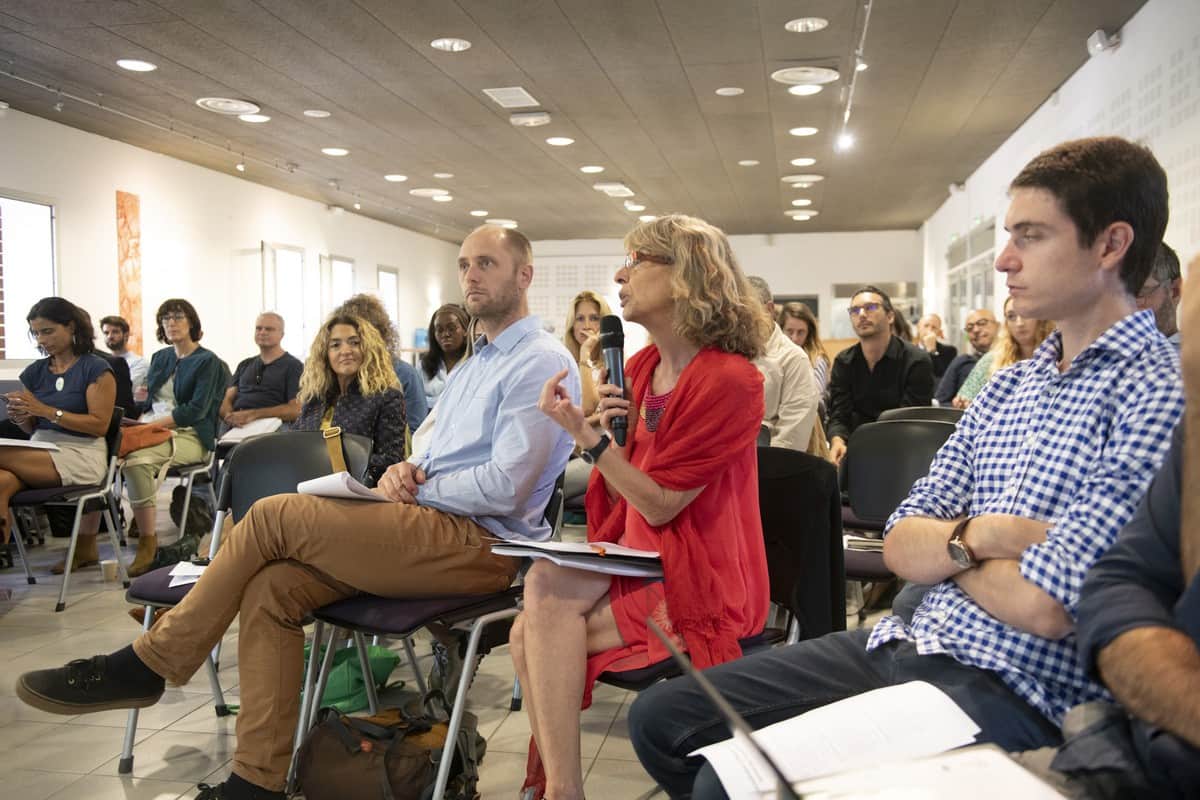On September 22, 2023, AViTeM took part in the 5th Annual Meeting of the PRECI Network alongside 170 participants at the Aix-en-Provence Arbois Europole. This platform is a place to meet, reflect and exchange ideas, to involve stakeholders in the co-construction of the regional circular economy policy, to help players network and to promote circular initiatives in the region.
The meeting started with an institutional round table including representatives from the network’s founding institutions: the State, ADEME (the Public Agency for Ecological Transition), Provence-Alpes Côte d’Azur (PACA) Region, Banque of Territories, PACA Chamber of Commerce and Industry, PACA Chamber of Trades and Crafts and PACA Regional Chamber of Social and Solidarity Economy Enterprises.
A few strong points were highlighted:
PRECI is becoming instrumental in promoting circular initiatives such as Eco-Défis (environmental action label) or Répar’Acteurs (repairing sector).
A great tool for mobilising economic players on the social-environmental issues in which lies the sustainability of their business (e.g. access to materials and energy resources, relevance of business models).
PRECI increases the capacity for collaborative work between companies that want to take action. This is vital: an isolated company can do nothing. The challenges of circular economy and ecological transition can only be resolved collectively, by thinking and acting together: PRECI comes as the operational counterpart of the need for inter-institutional partnership.
It is a tool for connecting economic players and institutional players, enabling better mutual understanding (situations experienced by companies, institutional support mechanisms in particular). It also makes it easier for both sides to adapt to the principles of reality, whether in the field or at institutional level.
Two plenary sessions followed, on sustainable procurement and training as a lever for deploying circular economy. Indeed, an ecological transition implies the emergence of new markets, new activities and the transformation of professions. It requires and will require even more specific skills. This challenge concerns businesses, public authorities and those involved in initial and continuing vocational training.
In this context, there was an interesting presentation by representatives from the Specialised Masters Program “Circular Economy and Sustainable Organisation” at the Polytechnical University of Marseille: their training involves a holistic vision of the ecological transition and aims to provide students skills regarding
an adapted and proactive approach to industrial organisation;
a sustainable economy that generates wealth and jobs;
an acceptable societal and environmental point of view.
This master’s degree is divided into several teaching units that are both theoretical and operational. with 3 possible courses: Sustainable Eco-engineering; Circular Systems; Bio Valorisation.
In the afternoon, several entrepreneurs pitched their circular economy projects, with inspiring testimonials on the themes of eco-design, recycling, upcycling, repair, innovation, cooperation, etc. Three pitches showcased interesting good practices for CEFoodCycle:
Repulp: A design studio based in Marseille, that recycles waste from the extraction of fruit juices from the French agri-food industry to produce a range of objects going from cups to lighting, in a zero-waste approach.
Ipsago: iPSAGO collects oversized or overproduced fruit and vegetables from regional organic farmers, as well as underused co-products such as spent grains from traditional Provençal breweries, oilcake from oil mills, okra from plant milks and pulp from fruit juice manufacturers, to make organic biscuits.
LØV NOW: Eco-designed local composting solution produced in the Provence-Alpes-Côte d’Azur region, with turnkey support solutions.



